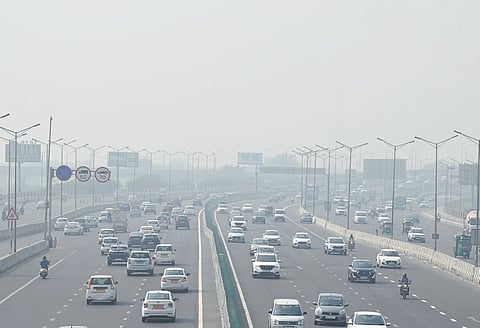

NEW DELHI: The quality of air has worsened in the national capital in the past 24 hours after a short breather of two days, causing problems to the people who are already reeling with respiratory disorders.
According to the Central Pollution Control Board (CPCB), the air quality index (AQI) in Delhi was recorded at 356 index value, which is marked under the “very poor” category.
The System of Air Quality and Weather Forecasting And Research (SAFAR) has predicted that the air quality is likely to be in the “very poor” category from October 28 to October 30.
“The air quality may reach a severe category on October 30 in case of additional emissions from firecrackers and stubble fire. The meteorological conditions are unfavourable for effective dispersion of pollutants,” the weather forecasting agency said.Vehicular emission was the biggest contributor to Delhi’s pollution on Sunday, accounting for about 13%, according to the Centre’s Decision Support System for Air Quality Management. It predicted that vehicular emissions will remain the top contributor to Delhi’s pollution over the next two days.
An AQI between zero and 50 is considered ‘good’, 51 and 100 ‘satisfactory’, 101 and 200 ‘moderate’, 201 and 300 ‘poor’, 301 and 400 ‘very poor’, and 401 and 500 ‘severe.’
According to the India Meteorological Department (IMD), the wind speed in the city was calm. As per experts, Delhi’s air quality had improved from “very poor” to “poor” category in the last two days due to favourable winds.
Notably, the second stage of GRAP was implemented from October 22 amid worsening air quality and exactly a week after when the CAQM had imposed GRAP-I in the Capital.
Under the second stage of the Graded Response Action Plan, the use of coal and firewood, including in tandoors at hotels, restaurants, and open eateries, as well as diesel generator sets (except for emergency and essential services), is completely banned.